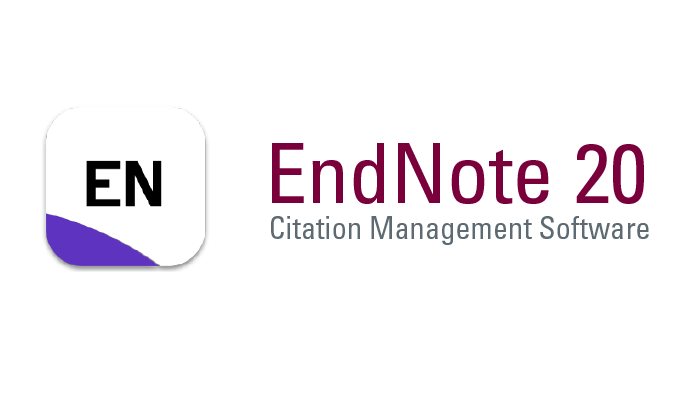TRANSFORMASI PENDIDIKAN ISLAM PERSPEKTIF HUKUM TIGA TAHAP AUGUSTE COMTE
DOI:
https://doi.org/10.47887/amd.v2i2.30Keywords:
Transformation;Islamic education; Three Stage LawAbstract
This study aims to examine the transformation of Islamic education in terms of Auguste Comte's three-stage law. This study uses a qualitative approach with the type of research is library research. The results of this study are that the theological stage occurred when the emergence of the first Islamic boarding school in the form of a Salaf Islamic Boarding School whose focus of study was only on theological aspects or aspects of life after death. then the metaphysical stage shows the use of reason to answer problems that occur in humans both at the theological level as well as worship and muamalah. then the positive stage where humans have considered scientific facts in solving Islamic problems, namely the emergence of offers of humanist meanings of Islam such as pluralism and Islamic archipelago. The emergence of Islamic higher education institutions has also become a forum for discussing scientific answers by academics who have professional qualifications and competencies.
References
Anam, S. (2017). Karakteristik Dan Sistem Pendidikan Islam: Mengenal Sejarah Pesantren, Surau Dan Meunasah Di Indonesia. JALIE; Journal of Applied Linguistics and Islamic Education, 1(1), 146–167.
Arifin, S. (2018). Intelektualisme Profetik: (Respons terhadap Isu-isu Kontemporer di Seputar HAM, Radikalisme, Ekologi, dan Pendidikan). Malang: UMMPress.
Arifin, Z. (2012). Perkembangan pesantren di Indonesia. Jurnal Pendidikan Agama Islam, 9(1), 40–53.
Astini, K. Y. W., & Arsadi, P. E. (2021). Perkembangan Akal Budi Manusia Pada Zaman Positifistik Dalam Perspektif Auguste Comte. Vidya Darśan: Jurnal Mahasiswa Filsafat Hindu, 2(2), 179–188.
Chabibi, M. (2019). Hukum Tiga Tahap Auguste Comte dan Kontribusinya terhadap Kajian Sosiologi Dakwah. NALAR: Jurnal Peradaban Dan Pemikiran Islam, 3(1), 14–26.
Daulay, H. P. (2019). Pendidikan Islam di Indonesia: Historis dan Eksistensinya. Kencana.
Haq, A. F. (2020). PEMIKIRAN TEOLOGI TEOSENTRIS MENUJU ANTROPOSENTRIS HASAN HANAFI. Jurnal Ilmiah Spiritualis: Jurnal Pemikiran Islam Dan Tasawuf, 6(2), 159–190.
Hariadi. (2015). EVOLUSI PESANTREN; Studi Kepemimpinan Kiai Berbasis Orientasi ESQ. Penerbit & Distribusi, LKiS Yogyakarta.
Hasanah, U, Suatuti, E., & Rahayu, D. (2020). Buku Ajar Teori Hukum. Surabaya: SCOPINDO MEDIA PUSTAKA. Retrieved from https://books.google.co.id/books?id=YIrUDwAAQBAJ
Hasanah, Ulfatun. (2019). Kontribusi Pemikiran Auguste Comte (Positivisme) Terhadap Dasar Pengembangan Ilmu Dakwah. Al-I’lam: Jurnal Komunikasi Dan Penyiaran Islam, 2(2), 70–80.
Huda, M. (2020). Perbandingan Sistem Hukum. CV Cendekia Press.
Ibrahim, R. (2014). Eksistensi pesantren Salaf di tengah arus pendidikan modern. Analisa: Journal of Social Science and Religion, 21(2), 253–263.
Idris, M., Willya, E., & Rumondor, P. (2020). Orientasi Pendidikan Islam. Yogyakarta: Deepublish.
Maulana, U. M. M. (2009). Auguste Comte Dan Ide Positivismenya. Jurnal Al-Fath, 1, 32–39.
Moko, C. W. (2017). Pluralisme Agama Menurut Nurcholish Madjid (1939-2005) dalam Konteks Keindonesiaan. Jurnal Intelektualita, 6(1).
Mubarak, H. A. Z. (2019). Sistem Pendidikan di Negeri Kangguru: Studi Komparatif Australia dan Indonesia. zakimu.com.
Munir, M. (2018). Filsafat Sejarah. Yogyakarta: UGM PRESS.
Muzakir, A. (2017). Transformasi pendidikan islam di Jambi: Dari Madrasah ke pesantren. Islam Realitas: Journal of Islamic and Social Studies, 3(1), 8–20.
Nawawi, H. H. (2005). Metode penelitian bidang sosial.
Nurianto Rachmad Soepadmo. (2020). Buku Ajar Filsafat Hukum. Sidoarjo: Zifatama Jawara.
PERATURAN PEMERINTAH REPUBLIK INDONESIA NOMOR 55 TAHUN 2007. (n.d.).
Permana, F. E. (2019). Literasi Digital di Pesantren Masih Perlu Ditingkatkan | Republika Online. Retrieved August 21, 2021, from Republika website: https://republika.co.id/berita/dunia-islam/islam-nusantara/puw4bf320/dunia-islam/islam-nusantara/19/07/19/puvwko458-literasi-digital-di-pesantren-masih-perlu-ditingkatkan
PUSARAN, S. U. P. T. D. (2018). Kajian Poskolonial Gerakan Pemikiran dan Sikap Ulama Pesantren Tegalsari dalam Pusaran Konflik Multidimensional Di Jawa (1742-1862). Jurnal Theologia, 29(1), 189–214.
Sholehuddin, M. S. (2019). ANGKA PARTISIPASI KULIAH MASYARAKAT JAWA TENGAH TERHADAP PTKIN TAHUN 2015-2017.
Solichin, M. M. (2015). Kebertahanan Pesantren Tradisional Menghadapi Modernisasi Pendidikan. KARSA: Journal of Social and Islamic Culture, 22(1), 93–113.
Sriyani. (2020). Perubahan Sosial Budaya. Batu: Literasi Nusantara.
Sudrajat, A. (2018). Pesantren sebagai Transformasi Pendidikan Islam di Indonesia. Vicratina: Jurnal Pendidikan Islam, 2(2), 64–88.
Sugiyono. (2008). Metode penelitian pendidikan: (pendekatan kuantitatif, kualitatif dan R & D). Alfabeta.
Suryono, A. (2019). Teori dan Strategi Perubahan Sosial. Bumi Aksara.
Syarifuddin, N. (2017). Madrasah Sebagai Bentuk Transformasi Pendidikan Islam Di Indonesia. Al-Ibrah, 2(2), 25–54.
Tempo, P. D. dan A. (2020). Wajah Islam Nusantara. Tempo Publishing.
Tohir, K., & M. Syukri Azwar Lubis. (2020). MODEL PENDIDIKAN PESANTREN SALAFI. SCOPINDO MEDIA PUSTAKA.
Zuhriy, M. S. (2011). Budaya pesantren dan pendidikan karakter pada pondok pesantren salaf. Walisongo: Jurnal Penelitian Sosial Keagamaan, 19(2), 287–310.
Downloads
Published
How to Cite
Issue
Section
License
Copyright (c) 2021 Hamdan Adib

This work is licensed under a Creative Commons Attribution-ShareAlike 4.0 International License.
Authors retain copyright and grant the journal right of first publication and this work is licensed under a Creative Commons Attribution-ShareAlike 4.0 that allows others to share the work with an acknowledgement of the works authorship and initial publication in this journal.
All articles in this journal may be disseminated by listing valid sources and the title of the article should not be omitted. The content of the article is liable to the author.
Authors are able to enter into separate, additional contractual arrangements for the non-exclusive distribution of the journal's published version of the work (e.g., post it to an institutional repository or publish it in a book), with an acknowledgment of its initial publication in this journal.
Authors are permitted and encouraged to post their work online (e.g., in institutional repositories or on their website) prior to and during the submission process, as it can lead to productive exchanges, as well as earlier and greater citation of published work.
In the dissemination of articles by the author must declare the Al-Madaris Jurnal Pendidikan dan Studi Keislaman as the first party to publish the article.














